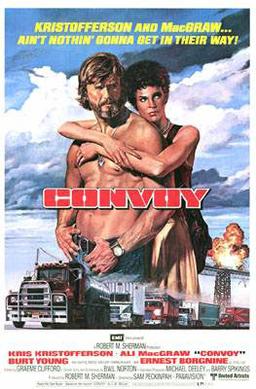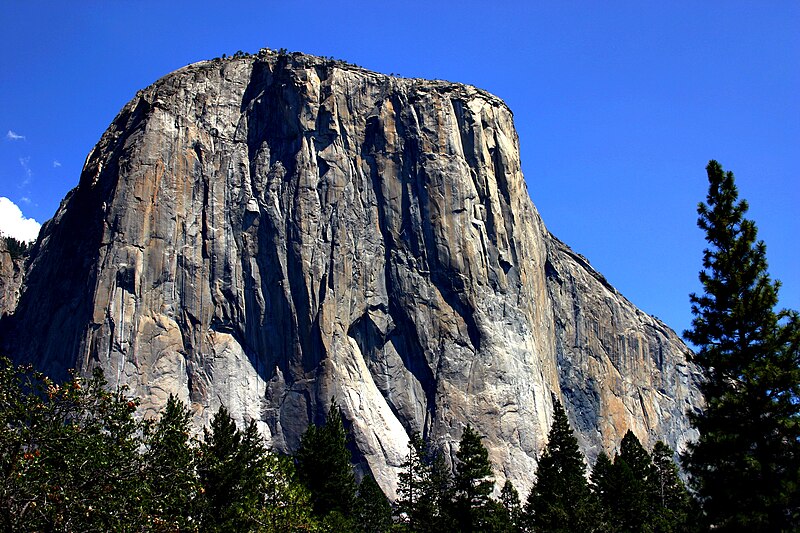Landschlacht, Switzerland, 16 August 2016
Recent events have made me aware of the importance that humanity gives to names.
A colleague and her husband, both good friends of mine, brought a new soul, a baby boy, into the world at 12:27 pm today.
This past weekend the mother was honoured with a baby shower – a party where her female friends give the mother gifts that they think she will need to help raise her new bundle of joy and baby names were discussed.
The Muslim Macedonian parents have decided to name the wee bundle of joy Dionysus (English spelling) which is their right to do so.
Frankly as much as I love both parents and am certain that their son will charm and delight my heart in the days to come, I cannot deny that this name choice worries me.
Though Macedonia shares a peninsula with Greece (Alexander the Great was Macedonian), where a name like Dionysus is possibly ordinary, my friends are Muslims living in Switzerland, and though I cannot claim to be an expert in Islamic culture nor in the subtle mores of the Swiss, I can’t help wonder how the wee lad’s name will be perceived growing up here.

Above: Flag of the modern Republic of Macedonia
Will he be accepted by those of his faith?
Will he be accepted by those he lives among?
Or perhaps maybe there are secret thoughts underlying this name choice?
I remember the Johnny Cash tune “A Boy named Sue” where Sue learns that his father gave him a girl’s name so the boy would be forced to be tough and would grow up strong.

Could the idea of a name making a person stronger be behind the choice of Dionysus?
Which raises yet another question…
Are we our names?
Do our names define us or are they nothing more than labels to differentiate one human being from another?
I do know that, with rare exception, most names have a history behind them.
Some of us are named after family or friends that shaped our parents’ lives.
In Star Trek we learn that the Captain was named after the fathers of his parents: James Tiberius Kirk.
In Harry Potter books we learn that Harry’s son, Albus Severius Potter, was named after two of Harry’s professors, Albus Dumbledore and Severius Snape.

Above: Hogwarts Castle
A good friend of mine is named after both his mother Eva and his father Ron and thus his name is Evaron.
I myself, when I was in the unique position of deciding what my name would be, as no birth certificate had existed for me before I was 18, chose Joseph Adam Oliver Kerr:
- Joseph in keeping with Quebec Catholic tradition of naming male children after Jesus’ human father (though with a multitude of Joseph boys running around this name doesn’t often end up on the birth certificate and is never used in daily life)(plus Joe Kerr / Joker does invite trouble, similar to expecting clown fish to be funny!),

- Adam (representing the start of a new generation)(Ironically my wife and I have no children),
- Oliver (like Charles Dickens’ Oliver Twist – at first thought to be orphaned without family),

- Above: Charles Dickens in 1867
- (For more about Charles Dickens, see Goodbye Charles of this blog.)
- Kerr (my surname, a clan name from Scotland, meaning, among many possible origins, “left-handed”, which I happen to be and which explains why Kerr castles have staircases built for left-handed sword fighting!).

Only later did I realise that I had named myself a damn cur! (a cursed canine)
It could have been worse:
I could have chosen the name Wayne! (as in Wayne Kerr – wanker)
The resulting initials were also preconceived: A for Allard, my foster father’s surname; O for O’Brien, my foster mother’s surname; K for Kerr my biological surname, resulting in AOK, meaning I’m all right in spite of everything!
(For more on this, see Alex Supertramp and Canada Slim as well as Canada Slim behind bars 5a: Arrested Development of this blog.)
Others are named by time and place: where they were and when they were when the baby was born or conceived.
The world is filled with names like April, May, June, August.
An old friend of mine is called Dawn and her daughter is named Aurora.
I have met a Kenyan named Innocent Sunday and others named after their birthplaces.
My nom-de-plume / pen name derives from two events:
During my hitchhiking days I worked on a fishing boat in the Gulf of Mexico, off the Tarpon Springs coast of Florida, in an old boat named after JFK’s wartime boat, PT-109.

Above: President John F. Kennedy, 1943, aboard patrol boat PT-109.
As my boss, “the Captain”, could never remember my name, he simply called me “Slim”.
(A tale best left for another day…)
Months later I found myself hitching in Washington State and a trucker suggested that I use a truck stop’s Citizen’s Band radio and pretend that I was a trucker asking other truckers to give the hitchhiker (also me but publicly not) a lift further on down the road.
I needed a “handle” – every trucker gives himself a CB radio name that both identifies himself yet conceals his identity simultaneously (Think of old 70s movies like Convoy.) and many use their place of residence as part of their handle.

Above: Movie poster, 1978.
I became “Canada Slim”, thinking of Minnesota Fats (Jackie Gleason) in the Paul Newman film The Hustler.

Years later my old friend Iain set me up with my first email account using the name “Canada Slim” after hearing about some of my adventures.
And well, I have grown to like this name.
Dionysus worries me for other reasons…
In Greek mythology Dionysus is the god of the grape harvest, winemaking and wine, of ritual madness, fertility, theatre and religious ecstasy.

Above: Dionysus / Bacchus by Caravaggio
Dionysus is a god of epiphany – the god that comes – and the last god to be accepted into Mount Olympus.
He has been portrayed as bearded and robed, holding a staff made of wheat and topped with a pine cone, as well as portrayed as being an androgynous, beardless, sensuous and naked youth returning triumphiantly and disorderly from some place beyond the borders of the known and civilised in a chariot drawn by lions and tigers and accompanied by wild female followers and bearded satyrs with erect penises.
Dionysus is chaotic, dangerous and unexpected.
The Romans called him Bacchus Eleutherios, for as he induces frenzy (bakkheia) this frenzy liberates (Eleutherios – the liberator), through wine, dance and music from self-conscious fear and worry and even frees us from the oppressive restraints of the powerful, including Death itself.
Are we our names?
(Would Donald Trump be as successful as he is had his ancestors upon moving to America not changed their name from Drumph?)

Will baby Dionysus grow up chaotic and dangerous?
We give such power to names, legally and symbolically.
I remember Prince, born Prince Rogers Nelson, whose refusal to conform became his defining characteristic to the point that he changed his name to a symbol no one could pronounce. (The Independent, 20 April 2016)

I have discussed within this blog how places name themselves after pre-existing places in other lands.
(See Alex Supertramp and Canada Slim, Shakespeare in the original Klingon, and Glarus: Every person a genius of this blog.)
And there have been people who conceal their identity behind other names for various artistic reasons: George Orwell – Eric Blair; Mark Twain – Samuel Clemens; Robert Galbraith – J.K. Rowling; Sting – Gordan Sumner; O. Henry – William Sydney Porter; Banksy…
To name just a few…
(See Best Kept Secret of this blog for more about Banksy.)
Names brand our reality and shape our perceptions.
I recall reading about how Yosemite National Park in the US has lost the right to use its own name:

Above: El Capitan, Yosemite National Park
“Yosemite” became the subject of a multimillion dollar contract dispute between the US government and the Delaware North Corporation of Buffalo, New York, who claims to have trademarked the name of the Park and many of its best-known attractions.
Park officials were forced to rename many of the Park’s landmarks and have stopped selling many souvenir items in their gift shops to stave off the threat of further legal action.
Workers have changed road signs and have covered plaques featuring the original names.
Park visitors and staff have been appalled that the dispute went so far.
A gift shop assistant compared this dispute to three-year-old children fighting.
Jack Whitcher, a retired doctor visiting the Park from San Francisco, told the New York Times that it was “disgusting that a private company can trademark a name that belongs to the land and to the people.
There’s one word for this: greed.“(The Times, 25 March 2010)
The name “Yosemite” (meaning “killer” in Miwok, one of the original native tribes) originally referred to the name of a renegade tribe which was driven out of the area (and possibly annihilated) by the Mariposa Battalion (a California state militia unit formed to combat the native tribes in 1851). (Wikipedia)
Canadian intellectual Marshall McLuhan once declared that “the name of a man is a numbing blow from which he never recovers”.

Numerous parents in Europe and in America pay large amounts of money to mitigate this damage.
Naming consultancy services, offering to guide nervous parents through the delicate business of ascribing a label to their newborn infants, have sprung up in Europe and America.
“My job is to handpick names that match a family’s priorities. For example, they desire an American name that families overseas can pronounce easily.”(Sherri Susanne, owner-operator of NYC company, My Name for Life)
(A problem I can relate to:
I recall visiting a Quebec hospital where I was summoned so oddly that I hesitated to respond.
“Mister” is “Monsieur” in French and abbreviated with “M.”
Kerr, traditionally pronounced “K-rrr”, gave the hospital nurse pause.
So in her head, M. Adam Kerr became “Madame Coo”!)
Albert Mehrabian, UCLA psychology Professor Emeritus, has attempted to quantify the effect of a name in surveys.

“We asked respondents to imagine that they were meeting someone for the first time.” (The Times, 23 April 2016)
Soon the world will be introduced to baby Dionysus, but I am confident that his character will not be defined by his name, but instead with the loving support of his family, his name will be defined by his character.
Dionysus – the boy that will come – the boy that has arrived to grace the world.
I can hardly wait to meet him.

